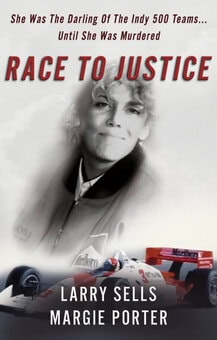
The trial was decades ago, but when I even try to speak of it, I find myself rising to my full height, pacing like a lion, ready to roar. Outsiders often view trial lawyers as eggheads who spend their time researching obscure points of law so that they can outwit their opponent in the courtroom.
That image makes for great tension on television, but in real life, trials, especially trials for violent and deadly crimes, are about people. I mean people who have been horribly treated through no fault of their own, and then have to suffer through the disgraces of a court system bent on protecting the rights of the accused. They have to come in and face the accused. They have to be questioned, over and over, about events they wish they could forget.
Your mother was slaughtered in front of you? You must sit in respectful silence while the defense digs up every piece of trash they can conjure. She hung her lingerie on a clothesline. She spent money on cigarettes or lottery tickets. She worked the late shift instead of taking a lower paying day job…
Yes, your mother was so eager to find a violent death that she lured her attacker through her behaviors and habits.
She asked to be murdered?
Sounds like it, according to the defense.
Unless there is a conviction, you may never get to tell the Court about her volunteer work, about her cooking for the elderly couple across the street, about the kid who found safety inside her walls… You might get to say those things if there is a sentencing hearing and you have a chance to read your victim’s impact statement. Otherwise, it’s all about the killer—his needs and his rights.
The prosecutor represents you and your mom. The defense can bring a full deck of cards to the table, but the prosecutor can be limited. No fair bringing in evidence that might bias the jury against the killer. Let’s not mention the other victims. Those events are not germane to this hearing.
And still. A system that allows for a jury of twelve peers to hear and view evidence and be instructed in the laws that apply to the facts, are factors that allow for true justice. It’s all very neat and orderly.
But there is a place for rage, too.
I was prosecuting a dad, a self-assured man in his forties. He had no worries that his victim, his son, aged eight or nine, would do him any harm. The child was terrified of his dad and did not want to go to court at all. (Even adults often quake when they walk through those doors.)
The man had been anally assaulting the boy for months. Despite extended counseling, the boy was a wreck. He had been totally shattered by his experience and all the counseling in the world was not likely to mend him. I explained to this child that the only way to stop his dad was to send him away. Otherwise, he would continue what he had been doing to him. It would never stop. He would find more victims.
There was medical evidence of the crimes, but the law could do nothing unless the kid would come into court and openly declare who had done it.
Trembling, the boy found the courage to testify.
But in the middle of his testimony, he began to bawl loudly. He jumped down from the witness chair and ran from the courtroom. He raced from the building and I ran after him, catching up with him outside.
He cried as if every bone in his body had been shattered. When the crying let up, I said, “Listen. You realize, don’t you, that he’s going to come back? You can’t let him win. You can’t let him keep doing this. You’ve got to get MAD!” And it was like my own fury gushed into him, assuring him that he was not alone. I said, “You’ve got to hate him even more than you hate him now because you are the only one who can stop him.”

We returned to the courtroom and the child, weak and pale, stumbled back to the witness stand. Before any question could be raised, he stood, pointing to his dad, and shouted, “You did this to me! You know you did it!”
The father received a sentence that he was guaranteed never to outlive. And I still carry fire in my belly for that child and the multitudes like him.
Find out about Larry Sells’ recent true crime book on the murder of Cindy Albrecht, RACE TO JUSTICE, here.
Thank you for standing up for the victims. The criminals seem to get special treatment so they’re ensured a fair trial, but defense lawyers have no qualms about dragging the victims through the mud. It’s disgusting. I read your Race To Justice and am glad Albrecht got 60 years, but I’m appalled his release date is June 2023. I hope that’s only a parole hearing and that he doesn’t get out. I saw his appeals were denied. I also hope you’ll update the book after June 2023 and it will say he’s still in jail. Not only should he have to admit his guilt, but he should have to tell where he put Cindy’s head to even get a parole hearing. I feel so badly for her family and friends, to not only have lost her in such a terrible way, but to also not be able to recover all of her. I hope Cindy is at peace.